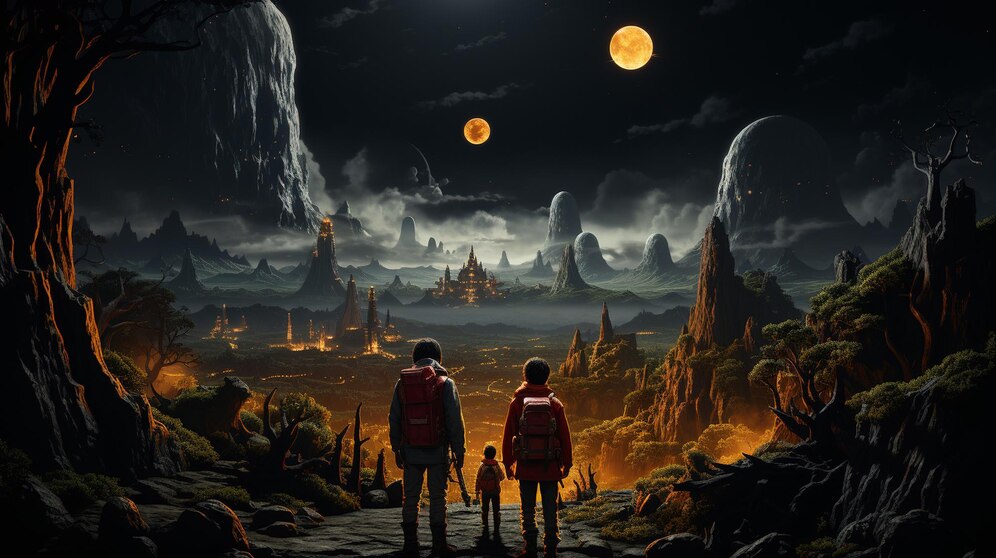In the vast spectrum of human experiences, few things possess the power to evoke emotions, memories, and cultural connections quite like music. From ancient rituals to modern-day celebrations, music has been an integral part of human civilization, transcending boundaries of language, culture, and time. In this blog post, we delve into the profound importance of music and explore its impact on individuals and societies worldwide.
Table of Content
- Inroduction
- Cultural Identity and Heritage
- Emotion Expression and Healing
- Universal Language and Connection
- Cognitive Development and Learning
- Social Cohesion and Celebration
- Inspiration and Creativity
- Conclusion
Cultural Identity and Heritage:

Music serves as a cornerstone of cultural identity and heritage. Through traditional songs, melodies, and rhythms, communities preserve their history, values, and beliefs. Whether it’s the rhythmic beats of African drums, the haunting melodies of Celtic folk songs, or the intricate compositions of Indian classical music, each culture’s musical expressions reflect its unique identity and contribute to the rich tapestry of global diversity.
Emotional Expression and Healing:

Music has an unparalleled ability to express and evoke emotions. From joy and excitement to sadness and longing, music provides a channel for individuals to convey their deepest feelings and experiences. Whether it’s a cathartic release through a heartfelt ballad or a surge of energy from an upbeat dance track, music has the power to uplift spirits, alleviate stress, and promote emotional well-being. In times of grief or adversity, music can also serve as a source of solace and healing, offering comfort and companionship during difficult moments.
Universal Language and Connection:

One of the most remarkable aspects of music is its ability to transcend linguistic and cultural barriers, serving as a universal language that connects people across the globe. Regardless of one’s native tongue or background, music has the capacity to foster understanding, empathy, and unity. Whether it’s through collaborative performances, shared playlists, or spontaneous jam sessions, music brings individuals together, fostering a sense of community and belonging in an increasingly interconnected world.
Cognitive Development and Learning:
![]()
Music plays a vital role in cognitive development and learning, particularly in early childhood education. Studies have shown that exposure to music at a young age can enhance brain development, improve language skills, and promote spatial reasoning. Furthermore, learning to play a musical instrument has been linked to enhanced memory, concentration, and problem-solving abilities. By engaging in musical activities, individuals of all ages can sharpen their cognitive faculties and cultivate a lifelong appreciation for the arts.
Social Cohesion and Celebration:

Music has long been a catalyst for social cohesion and celebration, bringing people together to commemorate special occasions, festivals, and milestones. Whether it’s a wedding procession accompanied by joyful melodies, a religious ceremony enhanced by sacred chants, or a national anthem sung in unison, music serves as a powerful symbol of unity and collective identity. Through communal music-making and shared experiences, societies strengthen bonds, forge new connections, and celebrate the richness of human expression.
Inspiration and Creativity:

Music has the power to inspire creativity and innovation across various fields, from art and literature to science and technology. Many creative thinkers and visionaries draw inspiration from music to fuel their imaginations and spark new ideas. Whether it’s a filmmaker using music to set the tone of a scene, a writer crafting prose to the rhythm of a song, or a scientist finding inspiration in the harmonies of nature, music serves as a limitless wellspring of creativity and inspiration.
Conclusion:
In conclusion, the importance of music in human life cannot be overstated. From its role in preserving cultural heritage to its capacity for emotional expression, cognitive development, and social cohesion, music enriches our lives in profound and multifaceted ways. As we continue to navigate the complexities of the modern world, let us cherish and celebrate the timeless power of music to uplift, inspire, and unite us all.




